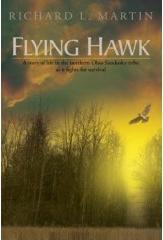The 2009 squirrel season opened on September 1, and the year should be a good one. With a generous six squirrel limit, it should be no trick most days to fill a ticket with some fine eating, and they are indeed good eating. Back when I was a kid in the hills of southern Ohio, my idea of a perfect meal was fried squirrel, gravy, boiled potatoes mashed with a generous helping of butter, collard greens, biscuits and honey. My opinion hasn’t changed since those days.
The scenario for those first of the season squirrels hasn’t changed, I’m sure, since pioneer days. Bushytails, whether fox or grey, love hickory nuts, particularly pignuts, and right now they’re feeding in any hickory tree they can find. So, successful hunting is mostly a matter of finding a few nut trees, looking for fresh cuttings below, and waiting for customers to arrive. They’ll feed in beech too, during early days, especially if few hickories are around, and feast on wild grapes, dogwood berries, and field corn.
All are worth checking now, and if they’re hitting corn hard, try a stand along a fencerow with a cornfield beside. It can be an easy place to pick up a limit, and the farmer is sure to appreciate it. If you’re hunting beech, don’t just find a good stand and sit down. There may be a hundred mature beech in a given woods, but squirrels will be working only two or three. Sweeter nuts? Maybe, but check the ground first and select those with cuttings beneath.
Every Ohio hunter knows that there are two species of squirrels in Buckeye country, fox and grey, and my area of northcentral Ohio is blessed with both kinds. Fox squirrels like small, open woodlots, while greys favor denser timber and larger areas of woods. They’ll intermingle, of course, and invade each others territory, but as a rule of thumb you’ll be hunting fox squirrels north of Mansfield, and in Huron, Crawford, and northern Ashland county. And greys south of town, and in Knox, Coshocton counties, and elsewhere.
Fox squirrels can be easy pickings. Most are dumb as the proverbial fence post, and unwary unless hunted hard. They’re late risers too, often stirring well after dawn and feeding until as late as 10 a.m. I hunt these wearing full camouflage and soft soled tennis shoes, and rarely sit down, moving at a slow “take three steps and stop” pace. I look around, but mostly I’m listening for falling nuts, the swish of limbs, and the clatter of claws on bark.
When I hear something interesting, I’ll stop, watch carefully, then head in that direction. When I see the animal, I’ll move around until I’ve a clear view, then make my shot. Moving slowly, but steadily has another advantage in that I can cover a whole woodlot in a reasonable time. If they’re concentrated in one spot, I’ll find them eventually.
Greys are a far different animal. They’re usually up and about at first grey dawn, so you’d best be in the woods by then. And the ideal situation is to scout your timber the evening before, then be sitting quietly among hickories come daylight. I’ve seen as high as a dozen greys in a single hickory then, taken an easy one, then had fast shooting as the others bailed out.
But they’re super wary and cautious, and walking them up usually ensures they’ll see you and flatten out along a branch for hours if necessary. Here’s a final thought. Greys like to travel in late morning, and they’ll often run ridges. A stand in such places will sometimes bring one or two more to fatten your game pocket.
Tags: Fox Squirrels, Grey Squirrels, Northcentral Ohio Hunting, Ohio Squirrel Hunting
